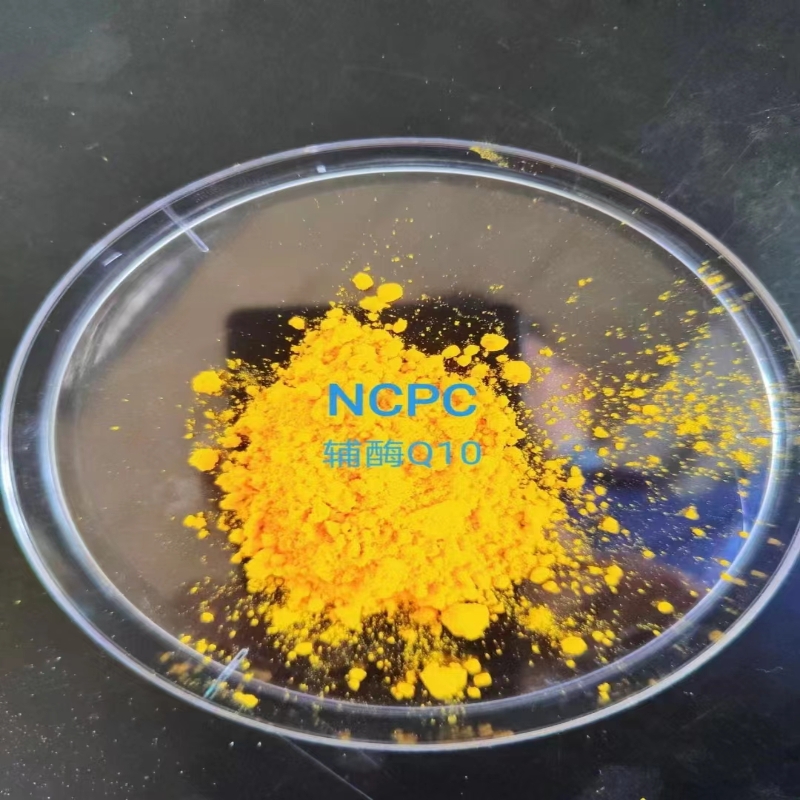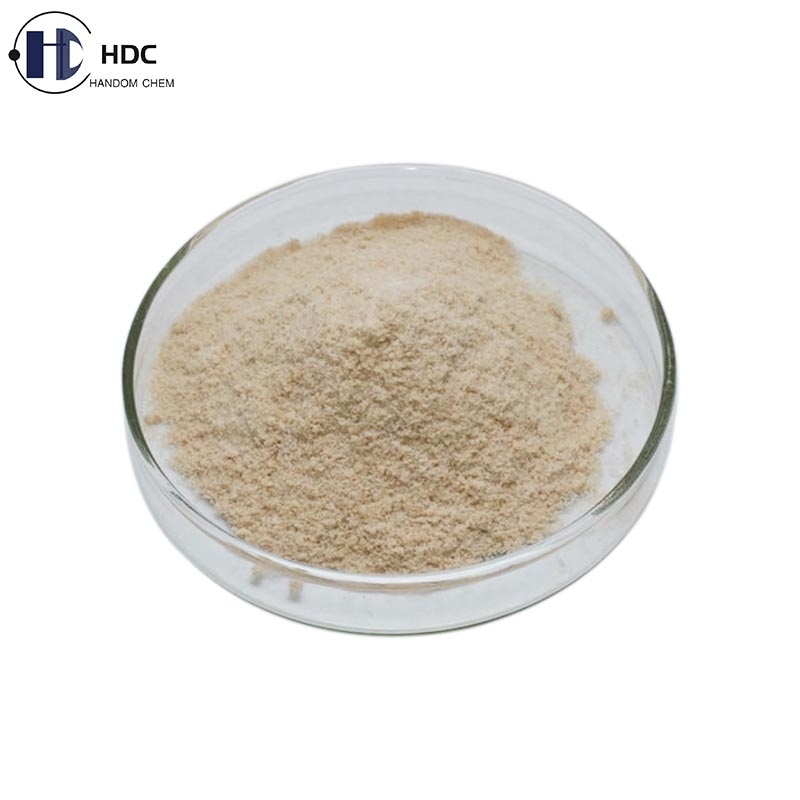How biotechnology can help the pharmaceutical industry
-
Last Update: 2015-04-13
-
Source: Internet
-
Author: User
Search more information of high quality chemicals, good prices and reliable suppliers, visit
www.echemi.com
In recent years, the emerging biotechnology has developed rapidly, such as gene editing technology, new generation sequencing technology, one-time production technology of biological products, etc These technologies not only promote the rapid development of the field of basic medicine, but also bring new wind to pharmaceutical enterprises, which has changed the whole pharmaceutical industry to a large extent The production of monoclonal antibody (mAb) drugs started in the 1990s has occupied a significant position in the pharmaceutical industry In 2014, among the top 10 best-selling drugs in the world, mAb drugs accounted for half of the total In the field of cell therapy, stem cell therapy and immune cell therapy have made remarkable progress, and some research results have been applied in major diseases such as tumor, cardiovascular system diseases, diabetes, degenerative diseases, autoimmune diseases and so on In 2014, tumor immunotherapy for PD1 target and PDL1 target made a breakthrough in clinical practice Pharmaceutical companies, large and small, reported quick results frequently, which showed the hope of conquering cancer Even gene therapy has attracted a lot of investment because of the development of gene editing technology Behind the development and production of these new biotherapy, some basic biotechnology and instruments are essential, such as cell processing and culture, protein analysis, biological sample preparation and other technologies and related instruments It can be said that the development of these technologies and instruments has led to the application of new biotherapy in medicine Today's Biopharmaceutical Enterprises do not need to spend too much energy on the general production process Take the Biopharmaceutical Enterprises that produce monoclonal antibodies as an example The core of their research and development lies in the selection of cell lines, that is, how to develop the best cell lines, so as to produce antibodies with high efficacy Other things have equipment suppliers to help them In the industrial chain of antibody drug production, the position of equipment suppliers is indispensable, especially in today's one-time production process has been widely used in the biopharmaceutical industry Merck millipore is a biotechnology company under Merck, Germany, and an important leader in the field of biological research and biopharmaceutical equipment In 2014, Merck announced the acquisition of sigma Aldrich, another biotechnology multinational At present, sigma Aldrich and Merck millipore have not completed the integration, but it can be predicted that Merck millipore, which has completed the integration, will become a well deserved giant in this field in the near future In order to understand how biotechnology can help the pharmaceutical industry, Guo Jianfu, editor in chief of Biovalley, interviewed Dr udit batra, CEO and President of Merck millipore, who was visiting in Shanghai In the past decade, biopharmaceutical solutions have become increasingly mature in terms of research and development ideas and processes In the interview, Dr udit batra introduced Merck millipore's complete solution in the field of biopharmaceutical Merck millipore provides end-to-end production process technology, which can provide systematic solutions in drug molecular structure, follow-up processing technology and disposable bioreactor The reason why disposable bioreactor is widely used by Biopharmaceutical Enterprises lies in its flexible configuration It can produce products of different types and scales to cope with various diseases, indications and changing market demands Moreover, the investment cost of one-off bioreactor is far lower than that of stainless steel equipment It can maintain a high market-oriented speed and complete plant construction, validation, batch replacement and other projects in the shortest time Since Merck millipore's customers cover the research institutions of basic medicine and the R & D and production departments of pharmaceutical enterprises, Dr udit batra also introduced Merck millipore's full industrial chain support from the early drug target research to the later drug manufacturing In terms of the upstream disposable bioreactor, Merck millipore provides a complete product line from 50 L to 2000 L On the basis of ensuring the safety and effectiveness of the drugs, the optimal process scheme is given to the customers, so as to maximize the expression of industrial production In the downstream protein purification and cell analysis, it can also provide good support It was Merck's optimism about the future of biotechnology that led to its acquisition of sigma Aldrich last year According to Dr udit batra, the entire acquisition process is expected to be gradually completed by mid-2015 After the integration of sigma Aldrich and Merck millipore, Merck millipore's product line will be further expanded, and the strength of antibody business, analytical reagent and culture medium business will be greatly improved Today, with the rapid development of Internet e-commerce, sigma Aldrich's mature e-commerce platform can help Merck millipore strengthen its sales ability and service, and also enable Merck millipore to further increase its product categories on the basis of 60000 products in the world Because sigma Aldrich occupies a large market share in the field of laboratory research, Merck millipore will be able to supplement its business in scientific research after integrating sigma Aldrich New biotechnology is in the ascendant in China, and Merck millipore said it is very optimistic about the prospect of the Chinese market Although China's labor costs are rising and the government's tax incentives for foreign enterprises are weakening, due to China's strong demand for biotechnology, Merck millipore will increase a series of investment in China, including R & D Merck millipore accounts for 5% - 6% of the Chinese market and 8% - 9% of the global market From this perspective, Merck millipore has great potential in the Chinese market In research and development, Merck millipore is cooperating with Fudan medical college to carry out some research on drug adjuvants In terms of production, Merck millipore is also making a very large investment in its production facilities in China About Merck millipore, the bioscience Business Department of Merck group, provides a series of innovative technologies, high-performance products and services, as well as business partnerships for bioscience research and biopharmaceutical research and development As a strategic partner, Merck millipore focuses on providing customers with research and cooperation in new science and engineering Its R & D investment in the life science tool industry also ranks in the top three, and works with customers to promote the development of life science Merck millipore is headquartered in billica, Massachusetts There are nearly 10000 employees in the world, 66 countries have offices, and the fiscal revenue in 2014 reached 2.7 billion euros About the CEO and President of Merck millipore, Dr udit batra is the president and CEO of Merck millipore, the life science branch of Merck group in Darmstadt, Germany It is responsible for the strategic direction and operation of the multinational company Prior to his appointment as president of Merck millipore, Dr batra was CEO and President of Merck consumer health, where he successfully developed businesses in both old and new markets Dr batra joined Merck from Novartis vaccine and diagnostics At Novartis, he was the director of global public health and marketing channels in Boston Prior to that time, he held several senior management positions, including the global head of corporate strategy at Novartis' headquarters in Basel, Switzerland, and the national president of Novartis' Australian Pharmaceutical business Udit batra joined Merck at West Point, Pennsylvania, as a research engineer He joined McKinsey in 2001 as a senior account manager in healthcare, consumer and non-profit sectors He was appointed global brand director of Johnson & Johnson's wound care franchise in 2004 and joined Novartis in 2006 Dr batra is a member of wsmi and chair of the aesgp food supplement Committee Dr batra holds a Ph.D in chemical engineering from Princeton University and a bachelor's degree in chemical engineering from the University of Delaware with honors He was born in India and is an American citizen
This article is an English version of an article which is originally in the Chinese language on echemi.com and is provided for information purposes only.
This website makes no representation or warranty of any kind, either expressed or implied, as to the accuracy, completeness ownership or reliability of
the article or any translations thereof. If you have any concerns or complaints relating to the article, please send an email, providing a detailed
description of the concern or complaint, to
service@echemi.com. A staff member will contact you within 5 working days. Once verified, infringing content
will be removed immediately.







